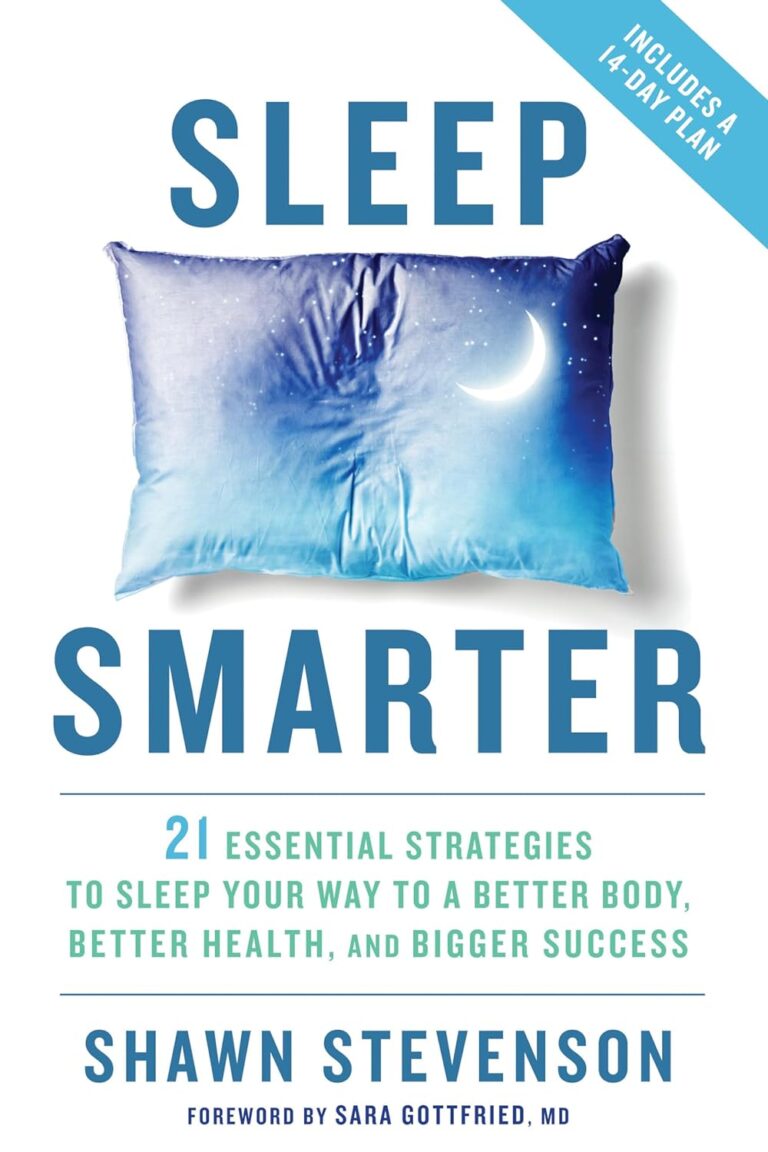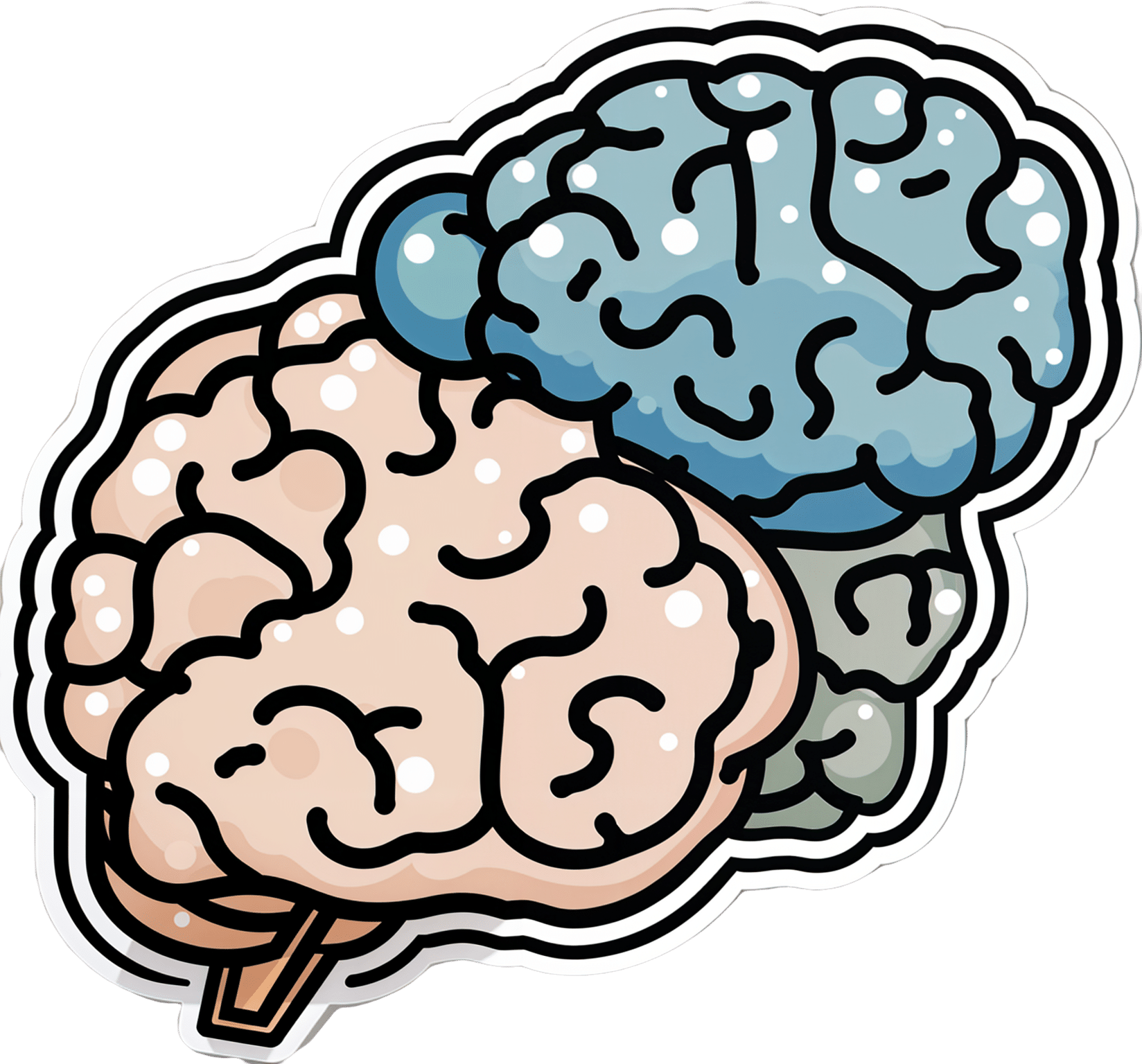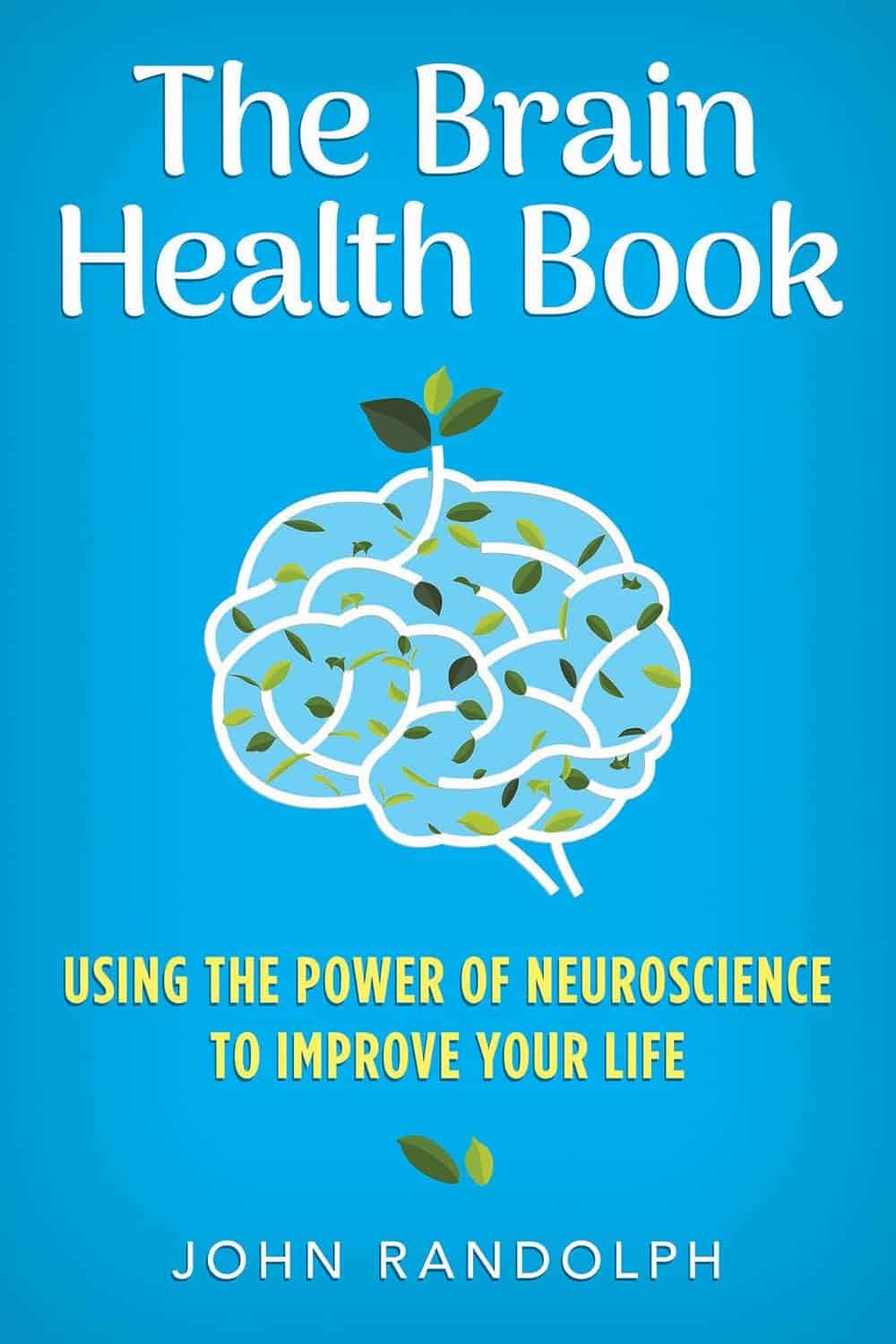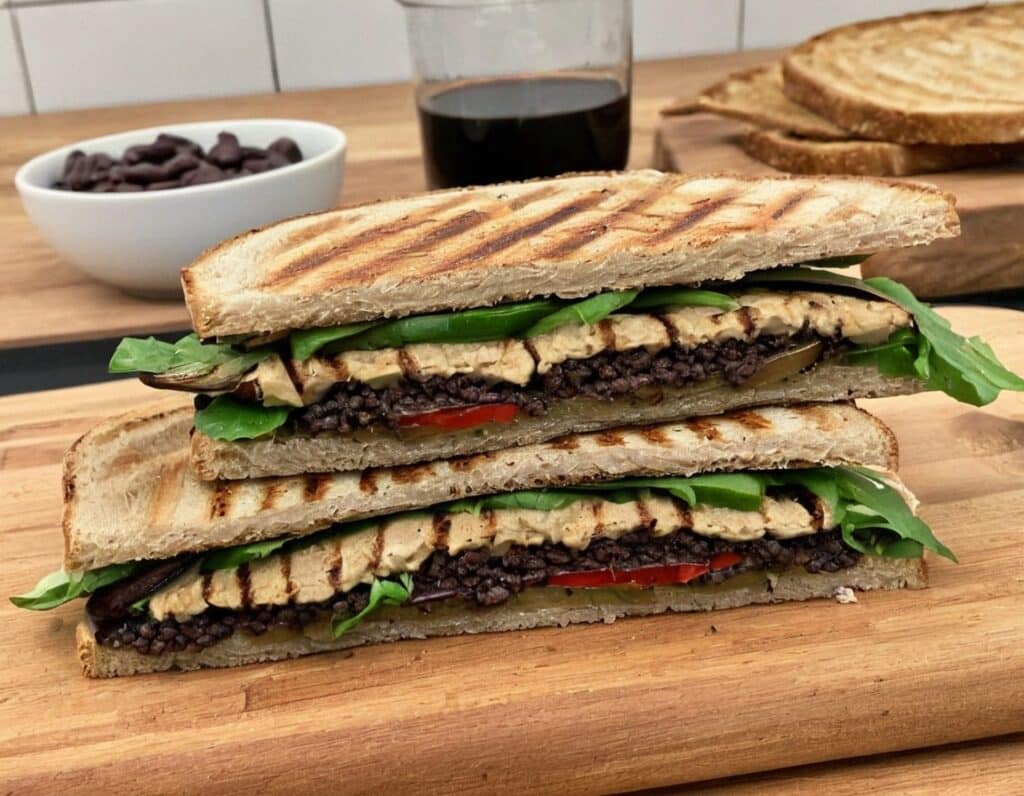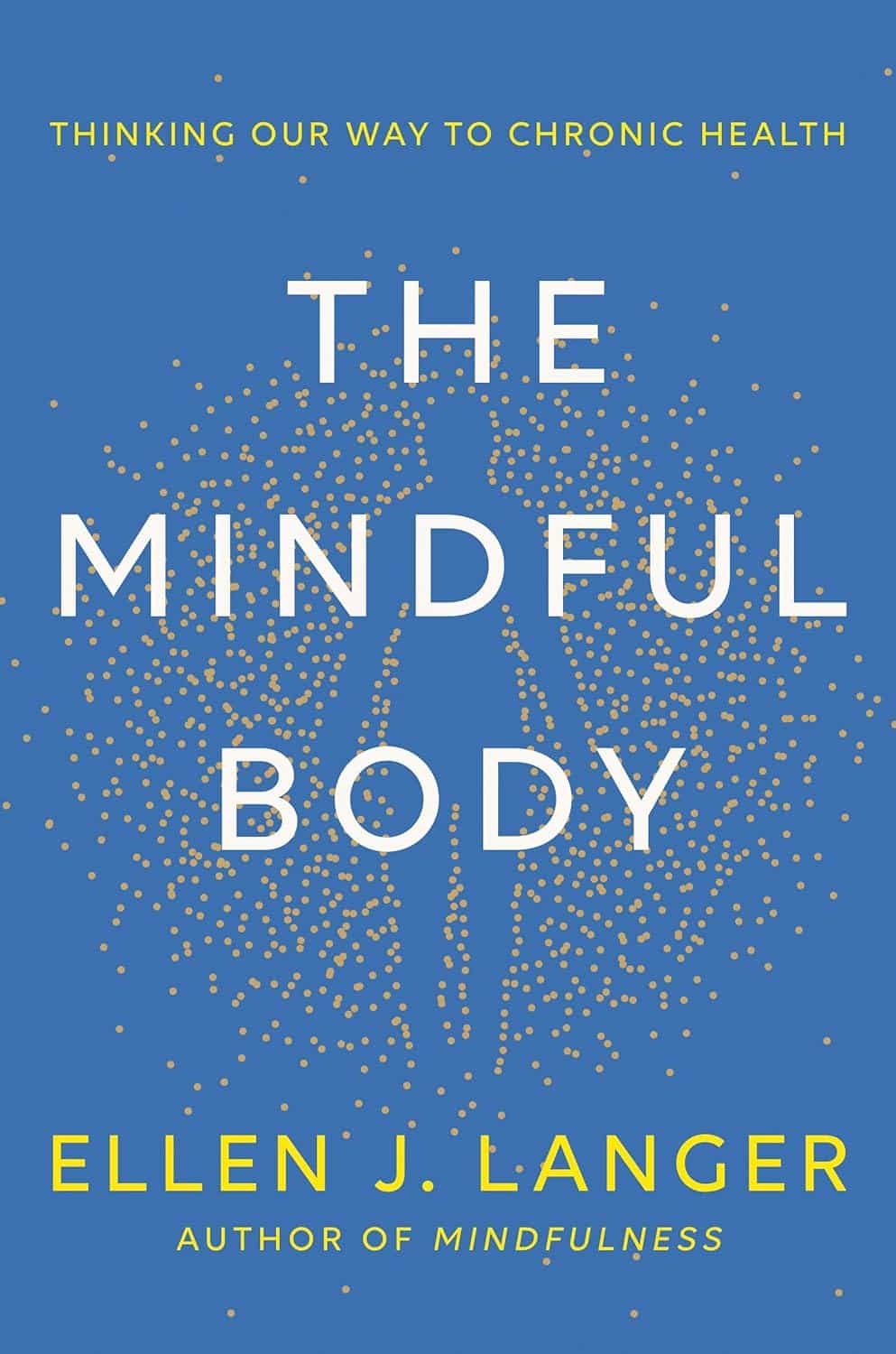
The Mindful Body – by Dr. Ellen Langer
10almonds is reader-supported. We may, at no cost to you, receive a portion of sales if you purchase a product through a link in this article.
Fear not, this is not a “think healing thoughts” New Age sort of book. In fact, it’s quite the contrary.
The most common negative reviews for this on Amazon are that it is too densely packed with scientific studies, and some readers found it hard to get through since they didn’t find it “light reading”.
Counterpoint: this reviewer found it very readable. A lot of it is as accessible as 10almonds content, and a lot is perhaps halfway between 10almonds content in readability, and the studies we cite. So if you’re at least somewhat comfortable reading academic literature, you should be fine.
The author, a professor of psychology (tenured at Harvard since 1981), examines a lot of psychosomatic effect. Psychosomatic effect is often dismissed as “it’s all in your head”, but it means: what’s in your head has an effect on your body, because your brain talks to the rest of the body and directs bodily responses and actions/reactions.
An obvious presentation of this in medicine is the placebo/nocebo effect, but Dr. Langer’s studies (indeed, many of the studies she cites are her own, from over the course of her 40-year career) take it further and deeper, including her famous “Counterclockwise” study in which many physiological markers of aging were changed (made younger) by changing the environment that people spent time in, to resemble their youth, and giving them instructions to act accordingly while there.
In the category of subjective criticism: the book is not exceptionally well-organized, but if you read for example a chapter a day, you’ll get all the ideas just fine.
Bottom line: if you want a straightforward hand-holding “how-to” guide, this isn’t it. But it is very much information-packed with a lot of ideas and high-quality science that’s easily applicable to any of us.
Click here to check out The Mindful Body, and indeed grow your chronic good health!
Don’t Forget…
Did you arrive here from our newsletter? Don’t forget to return to the email to continue learning!
Recommended
Learn to Age Gracefully
Join the 98k+ American women taking control of their health & aging with our 100% free (and fun!) daily emails:
-
The Most Annoying Nutrition Tips (7 Things That Actually Work)
10almonds is reader-supported. We may, at no cost to you, receive a portion of sales if you purchase a product through a link in this article.
You can’t out-exercise a bad diet, and getting a good diet can be a challenge depending on your starting point. Here’s Cori Lefkowith’s unglamorous seven-point plan:
Step by step
Seven things to do:
- Start tracking first: track your food intake (as it is, without changing anything) without judgment to identify realistic areas for improvement.
- Add protein: add 10g of protein to three meals daily to improve satiety, aid fat loss, and retain muscle.
- Fiber swaps: swap foods for higher-fiber options where possible to improve gut health, improve heart health, support fat loss, and promote satiety.
- Hydration: take your body weight in kilograms (or half your body weight in pounds), then get that many ounces of water daily to support metabolism and reduce cravings.
- Calorie swaps: replace or reduce calorie-dense foods to create a small, modestly sustainable calorie deficit. Your body will still adjust to this after a while; that’s fine; it’s about a gradual reduction.
- Tweak and adjust: regularly reassess and adjust your diet and habits to fit your lifestyle and progress.
- Guard against complacency: track consistently, and stay on course.
For more on all of these, enjoy:
Click Here If The Embedded Video Doesn’t Load Automatically!
Want to learn more?
You might also like:
The Smartest Way To Get To 20% Body Fat (Or 10% For Men)
Take care!
Share This Post
-
Latest Alzheimer’s Prevention Research Updates
10almonds is reader-supported. We may, at no cost to you, receive a portion of sales if you purchase a product through a link in this article.
Questions and Answers at 10almonds
Have a question or a request? You can always hit “reply” to any of our emails, or use the feedback widget at the bottom!
This newsletter has been growing a lot lately, and so have the questions/requests, and we love that! In cases where we’ve already covered something, we might link to what we wrote before, but will always be happy to revisit any of our topics again in the future too—there’s always more to say!
As ever: if the question/request can be answered briefly, we’ll do it here in our Q&A Thursday edition. If not, we’ll make a main feature of it shortly afterwards!
So, no question/request too big or small
I am now in the “aging” population. A great concern for me is Alzheimers. My father had it and I am so worried. What is the latest research on prevention?
One good thing to note is that while Alzheimer’s has a genetic component, it doesn’t appear to be hereditary per se. Still, good to be on top of these things, and it’s never too early to start with preventive measures!
You might like a main feature we did on this recently:
Share This Post
-
Intermittent Fasting, Intermittently?
10almonds is reader-supported. We may, at no cost to you, receive a portion of sales if you purchase a product through a link in this article.
It’s Q&A Day at 10almonds!
Have a question or a request? We love to hear from you!
In cases where we’ve already covered something, we might link to what we wrote before, but will always be happy to revisit any of our topics again in the future too—there’s always more to say!
As ever: if the question/request can be answered briefly, we’ll do it here in our Q&A Thursday edition. If not, we’ll make a main feature of it shortly afterwards!
So, no question/request too big or small 😎
❝Have you come across any research on alternate-day intermittent fasting—specifically switching between one day of 16:8 fasting and the next day of regular eating patterns? I’m curious if there are any benefits or drawbacks to this alternating approach, or if the benefits mainly come from consistent intermittent fasting?❞
Short and unhelpful answer: no
Longer and hopefully more helpful answer:
As you probably know, usually people going for approaches based on the above terms either
- practise 16:8 fasting (fast for 16 hours each day, eat during an 8-hour window) or
- practise alternate-day fasting (fast for 24 hours, eat whenever for 24 hours, repeat)
…which latter scored the best results in this large meta-analysis of studies:
There is also the (popular) less extreme version of alternate-day fasting, sometimes called “eat stop eat”, which is not a very helpful description because that describes almost any kind of eating/fasting, but it usually refers to “once per week, take a day off from eating”.
You can read more about each of these (and some other variants), here:
Intermittent Fasting: What’s The Truth?
What you are describing (doing 16:8 fasting on alternate days, eating whenever on the other days) is essentially: intermittent fasting, just with one 16-hour fast per 48 hours instead of per the usual 24 hours.
See also: International consensus on fasting terminology ← the section on the terms “STF & PF” covers why this gets nudged back under the regular IF umbrella
Good news: this means there is a lot of literature into the acute (i.e., occurring the same day, not long-term)* benefits of 16:8 IF, and that means that you will be getting those benefits, every second day.
You remember that meta-analysis we posted above? While it isn’t mentioned in the conclusion (which only praised complete alternate-day fasting producing the best outcomes overall), sifting through the results data discovers that time-restricted eating (which is what you are doing, by these classifications) was the only fasting method to significantly reduce fasting blood glucose levels.
(However, no significant differences were observed between any IF form and the reference (continuous energy restriction, CER, i.e. calorie-controlled) diets in fasting insulin and HbA1c levels)
*This is still good news in the long-term though, because getting those benefits every second day is better than getting those benefits on no days, and this will have a long-term impact on your healthy longevity, just like how it is better to exercise every second day than it is to exercise no days, or better to abstain from alcohol every second day than it is to abstain on no days, etc.
In short, by doing IF every second day, you are still giving your organs a break sometimes, and that’s good.
All the same, if it would be convenient and practical for you, we would encourage you to consider either the complete alternate-day fasting (which, according to a lot of data, gives the best results overall),or time-restricted eating (TRE) every day (which, according to a lot of data, gives the best fasting blood sugar levels).
You could also improve the TRE days by shifting to 20:4 (i.e., 20 hours fasting and 4 hours eating), this giving your organs a longer break on those days.
Want to learn more?
For a much more comprehensive discussion of the strengths and weaknesses of different approaches to intermitted fasting, check out:
Enjoy!
Share This Post
Related Posts
-
Are You Stuck Playing These Three Roles in Love?
10almonds is reader-supported. We may, at no cost to you, receive a portion of sales if you purchase a product through a link in this article.
The psychology of Transactional Analysis holds that our interpersonal dynamics can be modelled in the following fashion:
The roles
- Child: vulnerable, trusting, weak, and support-seeking
- Parent: strong, dominant, responsible—but also often exhausted and critical
- Adult: balanced, thoughtful, creative, and kind
Ideally we’d be able to spend most of our time in “Adult” mode, and occasionally go into “Child” or “Parent” mode when required, e.g. child when circumstances have rendered us vulnerable and we need help; parent when we need to go “above and beyond” in the pursuit of looking after others. That’s all well and good and healthy.
However, in relationships, often it happens that partners polarize themselves and/or each other, with one shouldering all of the responsibility, and the other willfully losing their own agency.
The problem lies in that either role can be seductive—on the one hand, it’s nice to be admired and powerful and it’s a good feeling to look after one’s partner; on the other hand, it’s nice to have someone who will meet your every need. What love and trust!
Only, it becomes toxic when these roles stagnate, and each forgets how to step out of them. Each can become resentful of the other (for not pulling their weight, on one side, and for not being able to effortlessly solve all life problems unilaterally and provide endlessly in both time and substance, on the other), digging in to their own side and exacerbating the less healthy qualities.
As to the way out? It’s about self-exploration and mutual honesty—and mutual support:
Click Here If The Embedded Video Doesn’t Load Automatically!
Further reading
While we haven’t (before today) written about TA per se, we have previously written about AT (Attachment Theory), and on this matter, the two can overlap, where certain attachment styles can result in recreating parent/child/adult dynamics:
How To Leverage Attachment Theory In Your Relationship ← this is about understanding and recognizing attachment styles, and then making sure that both you and your partner(s) are armed with the necessary knowledge and understanding to meet each other’s needs.
Take care!
Don’t Forget…
Did you arrive here from our newsletter? Don’t forget to return to the email to continue learning!
Learn to Age Gracefully
Join the 98k+ American women taking control of their health & aging with our 100% free (and fun!) daily emails:
-
The Brain Health Book – by Dr. John Randolph
10almonds is reader-supported. We may, at no cost to you, receive a portion of sales if you purchase a product through a link in this article.
The author, a clinical neuropsychologist and brain health consultant, brings his professional knowledge and understanding to bear on the questions of what works, what doesn’t, and why?
In practical terms, the focus is mostly on maintaining/improving attention, memory, and executive functions. To that end, he covers what kinds of exercises to do (physical and mental!), and examines what strategies make the most difference—including the usual lifestyle considerations of course, but also more specifically than that, what to prioritize over what when it comes to daily choices.
The style is easy pop-science, with an emphasis on being directly useful to the reader, rather than giving an overabundance of citations for everything as we go along. He does, however, explain the necessary science as we go, making the book educational without being academic.
Bottom line: if you’d like to maintain/improve your brain, this book can certainly help with that, and as a bonus (unless you are already an expert) you’ll learn plenty about the brain as you go.
Don’t Forget…
Did you arrive here from our newsletter? Don’t forget to return to the email to continue learning!
Learn to Age Gracefully
Join the 98k+ American women taking control of their health & aging with our 100% free (and fun!) daily emails:
-
Black Bean Hummus Panini
10almonds is reader-supported. We may, at no cost to you, receive a portion of sales if you purchase a product through a link in this article.
A recipe for a sandwich? Try it once, and you’ll see why. Welcome to your new favorite!
You will need
- 1 cup cooked-and-rinsed black beans (canned is fine)
- ⅓ cup hummus (you can use our Hero Homemade Hummus recipe)
- 4 thin slices of eggplant (or more if you like it meaty)
- 4 sun-dried tomatoes
- 2 slices of your favorite bread (you can use our Delicious Quinoa Avocado Bread recipe)
- A little olive oil, ideally sprayable
Method
(we suggest you read everything at least once before doing anything)
1) Grill the eggplant slices until soft.
2) Spread hummus generously on one side of both slices of bread.
2) Add the black beans on top of one slice (the hummus will help them stay in place), followed by the sun-dried tomatoes and then the eggplant. Top with the other slice of bread, hummus-side down.
3) Coat (carefully, please) the inside of the panini press (both interior sides) with olive oil. If you don’t have sprayable oil, using a sheet of kitchen roll to apply the oil is a good way to do it without making a mess.
4) Grill the assembled sandwich, until the bread starts to brown and the insides are warm; this should take about 4 minutes.
Enjoy!
Want to learn more?
For those interested in some of the science of what we have going on today:
- Three Daily Servings of Beans?
- Chickpeas vs Black Beans – Which is Healthier?
- Lycopene’s Benefits For The Gut, Heart, Brain, & More
Take care!
Don’t Forget…
Did you arrive here from our newsletter? Don’t forget to return to the email to continue learning!
Learn to Age Gracefully
Join the 98k+ American women taking control of their health & aging with our 100% free (and fun!) daily emails:

